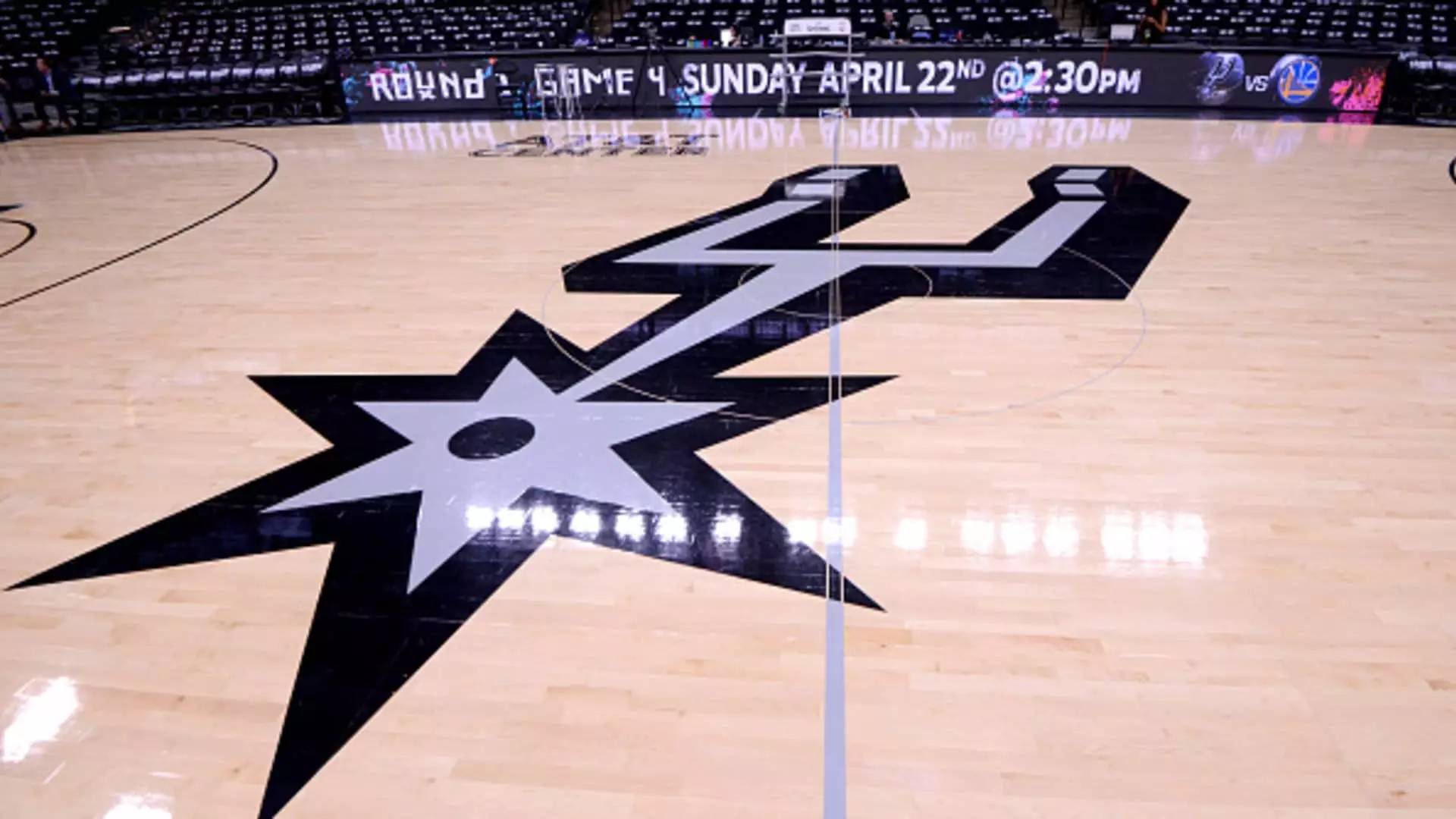In a notable move reflecting the soaring valuations of NBA franchises, businessman Paul Viera has decided to elevate his interest in the San Antonio Spurs from 5% to a significant 11%. This adjustment comes amidst an environment where investor enthusiasm for basketball teams is experiencing unprecedented highs, fueled by lucrative media deals and burgeoning fan engagement. Viera, known for founding and leading Earnest Partners, an Atlanta-based investment firm, has demonstrated a keen sense of timing as he capitalizes on the rising financial allure of ownership in a franchise steeped in history and potential.
Viera’s recent transactions included acquiring the remaining stakes held by food service giant Aramark in the Spurs, a move executed at what sources describe as a steep discount. The deal valued the team at an impressive $2.5 billion, intensifying discussions surrounding the increasing attractiveness of NBA teams as investment assets. Such strategic acquisitions are not merely about the economic potential; they reflect a shifting landscape in sports ownership, where returns on investment are drawing interest from a broader array of investors.
Team ownership, particularly in the NBA, often presents unique financial landscapes. One of the intricacies involves the acquisition of minority stakes which, while limiting decision-making power, can yield significant discounts. In his previous investment phase, Viera had purchased his initial 5% share for an undisclosed amount—reflecting a strategy that banks on long-term appreciation rather than immediate control over team operations. The recent disclosure from Aramark’s annual report indicated its sale of part of its holding for $98.2 million, a move that surprisingly revealed a pretax loss of $1.1 million during the fiscal year. This underscores the multifaceted risks and opportunities embedded in team ownership within the dynamic sports market.
Majority ownership of the Spurs rests with Peter Holt, whose family has held a controlling share since 1996. The franchise’s success is undeniable, having claimed five NBA titles; however, the recent seasons have seen a downturn, failing to reach the playoffs since 2019. The 2023-2024 season, which ended with a dismal 22-60 record, has been coupled with the emergence of Victor Wembanyama, a rookie widely regarded as a transformative talent poised to influence both the team’s on-court performance and its financial viability. His rise symbolizes hope not only for the Spurs’ competitive revival but also for the investment prospects tied to franchise success.
Viera’s augmented equity in the Spurs mirrors trends observed across the league. Teams are increasingly perceived as hot commodities, largely resulting from an expansive $76 billion media rights deal that secures NBA’s profitability for years to come. Such dealings create an appealing landscape for investors like Viera, who are looking for favorable returns driven by increasing visibility and marketability of the league’s brands.
Recent transactions add to this narrative; the sale of a minority stake in the Milwaukee Bucks by former star Junior Bridgeman at a remarkable enterprise valuation of $4 billion illustrates a similar trajectory. The variance in ownership valuations within the league reflects a growing acknowledgment of sports as a serious asset class—one that is catching the attention of diverse investors, including former players and prominent business figures. Viera’s decision echoes a wider trend aimed at diversifying ownership in a sport that has historically seen limited participation from individuals of color.
As significant ownership shifts occur, attention now turns toward the Boston Celtics. Following their recent triumph in the NBA Finals, co-owner Wyc Grousbeck has initiated a sale of his stake, with speculation suggesting that the team could command anywhere from $5.5 billion to $6 billion. This represents a staggering increase from the $360 million paid in 2002, epitomizing the investment boom in the league.
The evolving landscape for NBA team ownership underscores intricate relationships between performance, market dynamics, and individual investment strategies. Viera’s move is a case in point, signaling not only a personal bet on the Spurs’ resurgence but also highlighting the larger financial potential of NBA teams as sought-after assets in today’s economy. The convergence of sport and finance has never been more pronounced, opening doors for new ownership profiles and altered power dynamics within the game.

